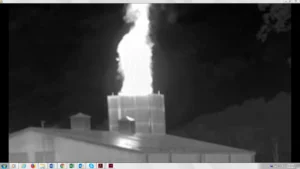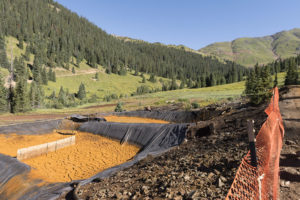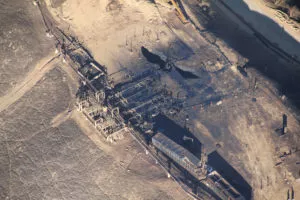Why disclosure is necessary
Full public disclosure of all oil and gas drilling, stimulation and workover fluids is necessary — at a minimum — for property owners and the public to:
- understand the health risks associated with oil and gas development and production;
- prove a driller has polluted groundwater — it’s difficult to accuse a company of polluting your well with a toxic if they aren’t required to admit they’re using the toxic in the first place;
- make responsible decisions about whether and how oil and gas drilling/production should occur.
Unfortunately, that minimum is not met by any state or federal agency. Currently the oil and gas industry is injecting millions of gallons of toxics underground, through groundwater and drinking water — and the public is largely in the dark.
Why drillers can hide their toxics from the public
At the federal level, the Halliburton loophole prevents the Environmental Protection Agency from requiring public disclosure of hazardous drilling chemicals under the Safe Drinking Water Act.
Until the federal government acts to require disclosure, state governments must act — as they aren’t barred from doing so. Recently, several states — Wyoming, Texas, Montana, California, Michigan and Pennsylvania — have done so. Others — like New Mexico — have failed at passing legislative or regulatory proposals. And industry has come up with its own voluntary disclosure mechanism as well.
However, these initiatives are inadequate.
What disclosure should include
Practical, hard-won experience by communities living with drilling shows that:
- Disclosure must be public This is includes posting on a publicly accessible and searchable website all chemicals by CAS number, well, and company.
- Disclosure must be easily accessible and timely This includes pre-fracturing notice to landowners, local governments and water providers and the posting of the chemicals actually used to the website in a timely manner. There should be no obstacles to health care professionals accessing all chemical information in an emergency.
- Disclosure must be comprehensive, including maximum concentrations and volumes This includes all chemicals, not just those appearing on Material Safety Data Sheets (MSDS). MSDS’ are designed only for worker safety and not to protect water quality or environmental health.
- There should be few, if any, exemptions from disclosure Any exemptions claimed should have a specific justification and there should be a mechanism for challenging any exemption claims. In short, the burden must be on the operator to demonstrate the economic need for the exemption.
- There should be specific enforcement provisions to ensure compliance The public should be able to enforce the timely reporting of the use of chemicals and not have to rely on the agency to do so
- Disclosure must be mandatory, for all companies We recommend a regulatory incentive to encourage disclosure — adoption of the presumption that any fracking chemical contamination of water within one mile of an oil or gas well was caused by the well. The only way for the operator to avoid this presumption: prior to well operations, perform and make publicly available baseline monitoring data that shows the presence of the fracking chemicals.
Recent disclosure initiatives are inadequate
So far, industry has blocked removal of the Halliburton loophole in the federal Safe Drinking Water Act, and none of the state disclosure rules have provided full public disclosure.
In particular, the state and industry disclosure initiatives so far are not comprehensive, allow for broad exemption claims and are not publicly accessible on a searchable website.
Federal disclosure initiatives might prove helpful
The Natural Gas Subcommittee of the Secretary of Energy’s Advisory Board (established at the request of President Obama) recommends we go beyond just disclosing the chemicals used in hydraulic fracturing. In addition to fracking chemicals, they recommend companies disclose the composition and character of produced water as well as measure and disclose toxic air emissions.
And the Department of Interior has begun a process to consider whether or not they will require the disclosure of fracking chemicals, or other toxic emissions, on oil and gas operations on public lands (even though the EPA isn’t allowed to require disclosure through the Safe Drinking Water Act, the Interior Department, as manager of lands owned by the public — e.g. Recreation Areas — can require disclosure on lands that it controls).
In May 2014, the EPA announced an Advanced Notice of Proposed Rulemaking on information that could be reported and disclosed for fracking chemicals and mixtures and the approaches for obtaining this information, including non-regulatory approaches.
For More Information
- Earthworks: Hydraulic fracturing 101
- Earthworks: Halliburton loophole
- Earthworks: Gaps in federal regulation of oil and gas production
- Earthworks: Texas hydraulic fracturing disclosure law is inadequate. EARTHblog, Sharon Wilson.
- Department of Energy: The Secretary of Energy’s Advisory Board Shale Gas Production Subcommittee Ninety-Day Report, August 11, 2011.
- Wilderness Society: State Hydraulic Fracturing Chemical Disclosure Requirements. Fact sheet.




